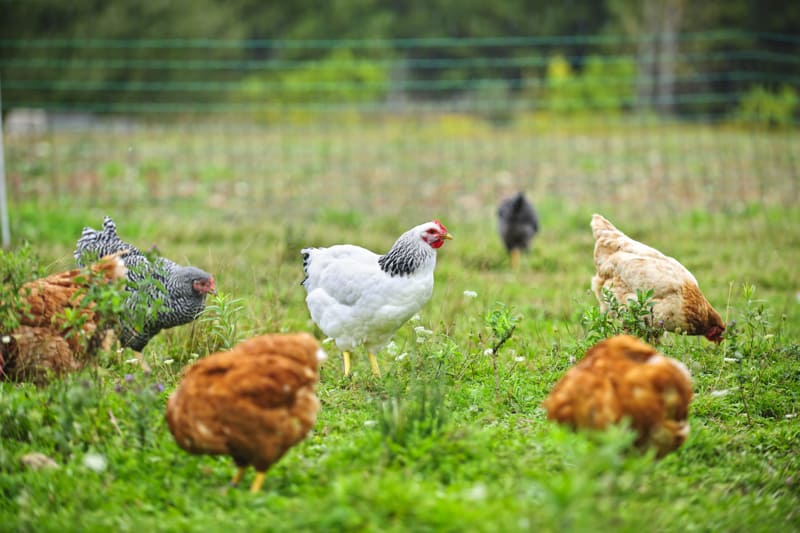
Who knew that buying a dozen eggs could become so darn complicated? Farm-fresh, all-natural, cage-free… those marketing departments are definitely working overtime.
Eggs were once unfairly framed as the culprit behind high cholesterol, and got the axe from the health world (along with fellow victims butter, salt, and more). Thankfully, eggs have gradually returned to their rightful place as part of a healthy diet.
Eggs are rich in protein, healthy fats, antioxidants, and essential vitamins and minerals. They contain high amounts of lutein and xeazanthin (important antioxidants) as well as choline (for good memory and brain function). They’re total nutrition powerhouses (which is why egg yolk is one of the first things I feed my babies when they’re starting solids.) Pretty awesome.
We know we want to eat them, and yet eggs are perhaps one of the most confusing areas of the store. You’re standing in front of the egg section, gazing with bewilderment at the claims accosting you from cartons. The myriad of terms and descriptors can make even the most devoted whole foodie’s head spin.
Here’s the main complication: where my food comes from and how it’s raised/grown/produced is really important to me. I don’t believe that it’s wrong to include meat and eggs in my diet, but I do want those things to be gained ethically and sustainably. After all, as the most intellectually advanced species, human beings have an inherent responsibility to care for creation, including animals. And causing unnatural distress to an animal for its whole life just so that I can have cheap eggs or meat is just not okay with me.
So, I ask questions about my food, the labels on it, and the ingredients in it, because accepting the status quo without a second thought is boring (and often harmful – to your health, and to the environment.)
So let’s dig into it, shall we?
Defining the Terms
As it turns out, “farm-fresh” and “all-natural” are both completely meaningless words that marketers use without any basis. Womp womp. What a let down, eh? These are purely marketing-speak, and have no significance whatsoever, except to that company’s bottom line (or so they hope).
The vast majority of eggs (yup, even the ones with meaningless pictures of idyllic farmlands on their cartons) produced in the U.S.A. and Canada are from hens overcrowded into small battery cages in large buildings without ever seeing the light of day. These cages have up to twelve birds with roughly the floor space of an iPad each (67 square inches).
They never have the ability to spread their wings, run around outside in the sunshine (as they naturally would), or eat their natural diet (chickens are natural foragers and would eat bugs and grass if they could) and they certainly aren’t living in what could be considered as humane conditions by any reasonable person.
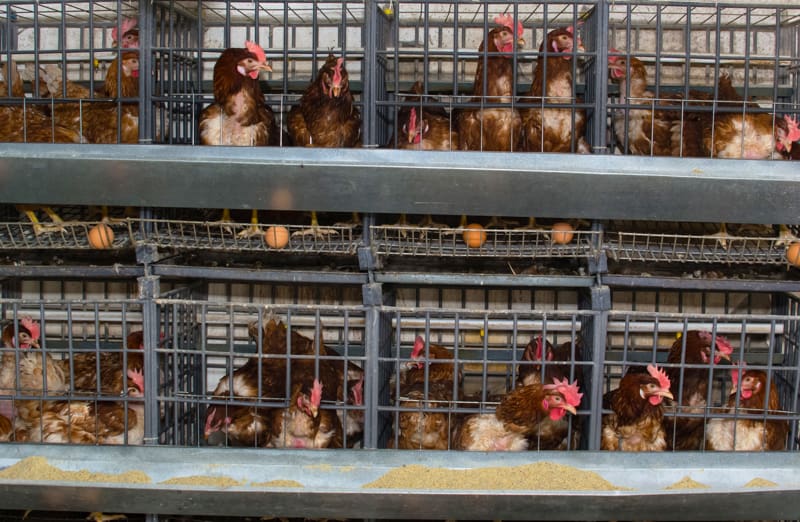
But what about cage-free eggs? What if the label on the carton proudly proclaimed “all natural cage-free eggs from small farmers”?
Sounds great, right? Sounds like an egg carton that may convince you to spend your extra hard-earned dollars on its higher price tag?
Let’s hit the pause button for a sec, and talk this out.
What exactly does “cage-free” mean?
Instead of being in battery cages, chickens are confined to giant metal aviary systems that run floor to ceiling, and to the lay person look a whole lot like a big cage. They have roughly the same amount of space per bird as conventional battery cages, and practically speaking there are no discernible differences in their quality of life.
Bottom line? It’s an unregulated term without little impact in reality.
Are any of the terms actually regulated?
Many people know that the term “organic” is, in fact, a government-regulated term, and thus assume that organic eggs would be the best choice. Unfortunately, when it comes to meat and eggs, organic doesn’t necessarily mean humane (though some Organic brands certainly are). The requirements for organic eggs are that the chickens have organic feed, and are cage-free. As we already discussed, cage-free is of little comfort to anyone seeking humanely-sourced eggs.
So what’s left? Are there any truly good options at the grocery store? I used to think that the answer was no, but then I learned about a brand called Nellie’s® Free-Range Eggs with the Certified Humane seal. And y’all – I am duly impressed.
Certified Humane
Nellie’s® Free-Range Eggs are “certified humane” which is one of those terms that actually means something. (How refreshing!) Certified Humane is a term that’s strictly regulated by a third-party non-profit organization with strict regulations in place for the humane treatment of animals in the food supply system.
Who makes the regulations, and how do we know they’re any good?
The standards are laid out in documents that you can download from their website and read. (I did, and was impressed.) There is one document for every animal and variety thereof (i.e. a separate one for broiler chickens and for laying hens). The standards in each are developed by an independent scientific committee comprised of 41 animal scientists and veterinarians from the U.S., Canada, Europe, and South America.
According to their website, “The standards are upheld through annual inspections conducted by scientists and veterinarians who are experts on the species they are inspecting. These are third-party independent inspections of all farms, ranches and slaughter facilities.”
The standards include things like:
- No cages, anywhere.
- Ample space and shelter, in clean, well ventilated barns.
- Gentle handling to limit stress.
- Freedom to do what comes naturally, like roosting, scratching, and dust bathing.
- Ready access to the outdoors and grass when the season and safety permit (which is to say, most of the time)
- Nutritious, high-quality feed free of antibiotics or hormones.
- Fresh, pure water whenever they want it.
And all of these bullet points are laid out with strict specification – inches of space per bird, how far a bird has to go to get outdoors, what sort of things are available to them outside (hay, grass, vegetable scraps, etc.) and so much more.
Your Best Option
If you have Nellie’s® Free Range Certified Humane eggs in your local store, consider yourself lucky, and add them to your cart. They’re legitimately worth it. If not, then ask your store to carry them!
It’s my hope that as we make educated choices on our food that the food supply system will gradually change. The more we choose humanely-raised eggs and meat, the more the system will adapt to serve us. And that’s a choice I can make wholeheartedly!
For more posts like this, don’t miss: 10 Questions to Ask Your Meat Supplier
Where do you buy your eggs? Are humanely-sourced eggs important to you?
This post was sponsored by Nellie’s® Free Range Eggs. I only partner with companies who align with the mission and values of Red & Honey, and I’m proud to tell you about their eggs here today. All opinions and thoughts are my own, as always!
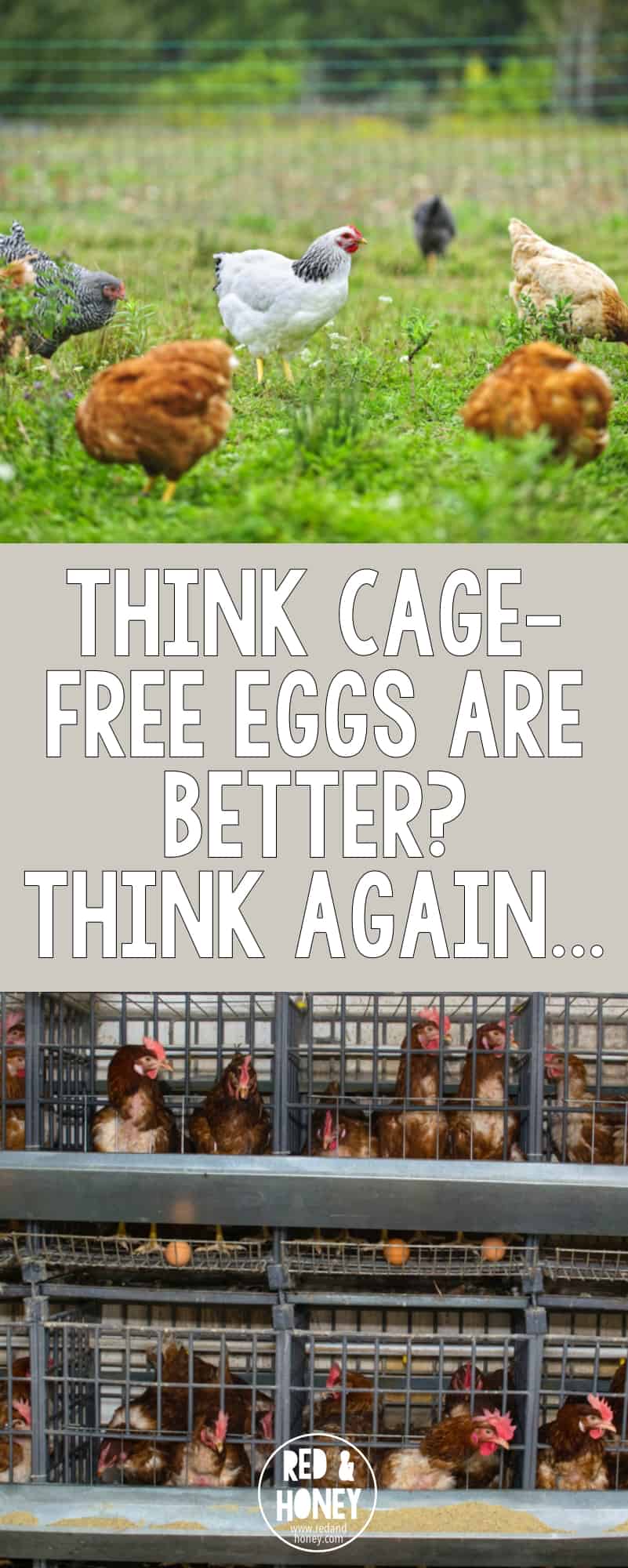

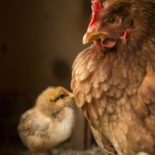
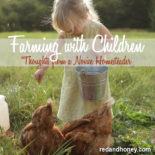


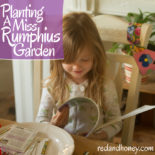




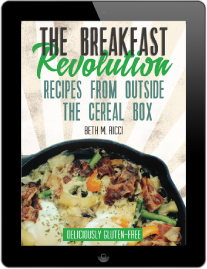

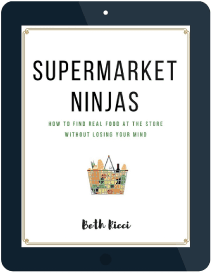
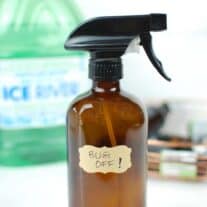





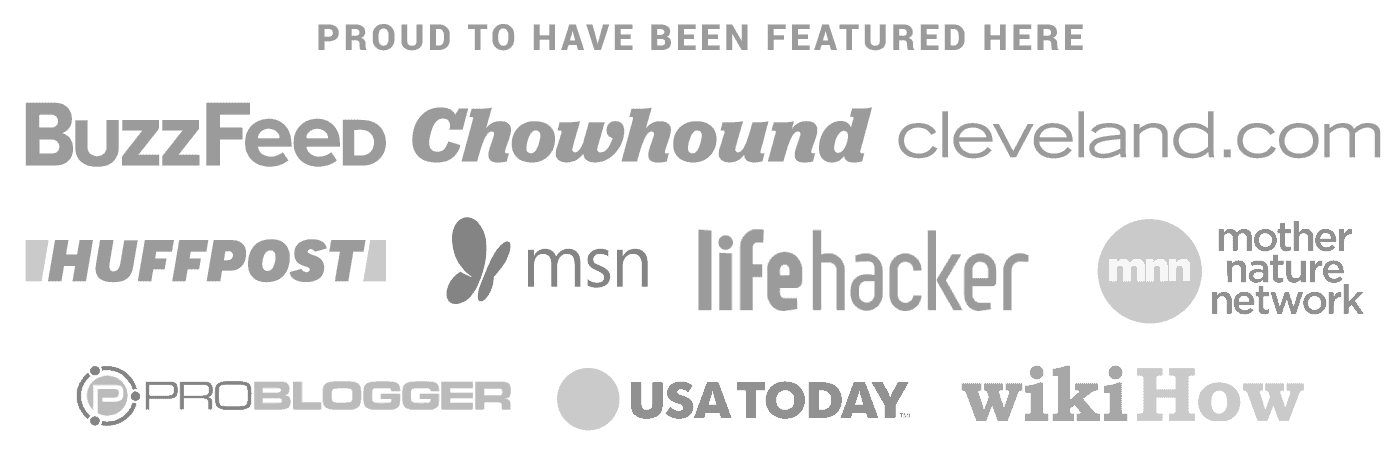
Jill
Thanks for this. We have our own egg-laying team consisting of 3 hens and 3 ducks, so we are seldom without eggs, but this is good information to have, regardless.
Leslie
I didn’t know, and am so glad you shared this. This is very important to me, and now I can make a better choice. Thank you.
Jessica
These eggs definitely sound like a better option than many, though I’d suggest the best way to get humane eggs is from a local farmer or backyard chicken keeper. They usually have chickens that actually live outside most of the time (water than indoors but with “access” to outside) and prices are comparable to supermarket free range eggs (around $4 or $5 a dozen) and that four or five dollars stays in your local community rather than going to a huge company.
Beth
I definitely agree, Jessica. However, for the people who want the convenience of getting everything from the grocery store, it’s nice to have better options. 🙂
MamaV
Yeah, I knew about “cage free” being a load of bull. I think I need to get chickens…
Beth
Glad you knew! Marketing is so sneaky sometimes.